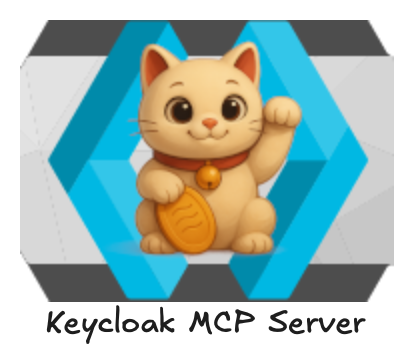About
A lightweight, Quarkus-based MCP server that provides tooling and RAG capabilities for Keycloak, enabling seamless authentication, resource management, and community search via standard I/O.
Capabilities

The Keycloak MCP Server bridges the gap between AI assistants and enterprise‑grade identity management by exposing Keycloak’s rich API surface through the Model Context Protocol. For developers who rely on Claude or other AI assistants to automate configuration, audit, or troubleshooting tasks, this server eliminates the need for custom adapters or manual API calls. Instead, a single MCP endpoint delivers a unified set of tools that can create users, manage clients, adjust roles, and even query the Keycloak Discourse community—all within a single AI workflow.
At its core, the server implements the MCP standard using Quarkus for rapid startup and low memory usage. It listens on standard I/O, making it lightweight enough to run as a local helper or be deployed in containerized environments. The configuration is intentionally simple: environment variables (, , ) provide the connection details, and the MCP client (such as Claude Desktop or VS Code) only needs to know the executable path. This design keeps security tight—credentials never leave the host machine—and allows developers to plug the server into any MCP‑compliant workflow with minimal friction.
Key features are grouped around three pillars: Identity Operations, Community Insight, and RAG (Retrieval‑Augmented Generation). Identity operations expose CRUD tools for realms, users, clients, roles, and groups—each represented as a distinct MCP tool that the AI can invoke. Community insight lets the assistant query Keycloak’s official Discourse forum, turning community knowledge into actionable suggestions. The built‑in RAG layer enriches prompts with up‑to‑date documentation or forum threads, enabling the AI to reference real‑world context when generating code snippets or configuration recommendations.
Real‑world scenarios that benefit from this server include automated onboarding scripts, policy audits triggered by AI queries (“Show me all users without a certain role”), or continuous compliance checks that pull the latest forum discussions to validate against internal standards. Because the server is Quarkus‑based, it can be compiled as an Uber JAR or native binary for MacOS, Linux, and Windows, making it ideal for both local development and production deployments.
In summary, the Keycloak MCP Server turns a complex identity platform into an AI‑friendly service. By abstracting authentication, resource management, and community knowledge behind a standard protocol, it empowers developers to write higher‑level AI workflows that can configure, query, and troubleshoot Keycloak without leaving the comfort of their preferred assistant or IDE.
Related Servers
MindsDB MCP Server
Unified AI-driven data query across all sources
Homebrew Legacy Server
Legacy Homebrew repository split into core formulae and package manager
Daytona
Secure, elastic sandbox infrastructure for AI code execution
SafeLine WAF Server
Secure your web apps with a self‑hosted reverse‑proxy firewall
mediar-ai/screenpipe
MCP Server: mediar-ai/screenpipe
Skyvern
MCP Server: Skyvern
Weekly Views
Server Health
Information
Explore More Servers
Ollama MCP Bridge WebUI
Local LLMs, Universal Tools, Web Interface
Mcp OpenMSX
AI‑driven control for openMSX emulators
MCP Server Template
TypeScript foundation for Model Context Protocol servers
mcpcap
Modular Python MCP Server for PCAP Analysis
MXCP
Enterprise‑grade MCP framework for AI tools
Vibe Check MCP
Mentor layer that stops over-engineering and keeps agents on the minimal viable